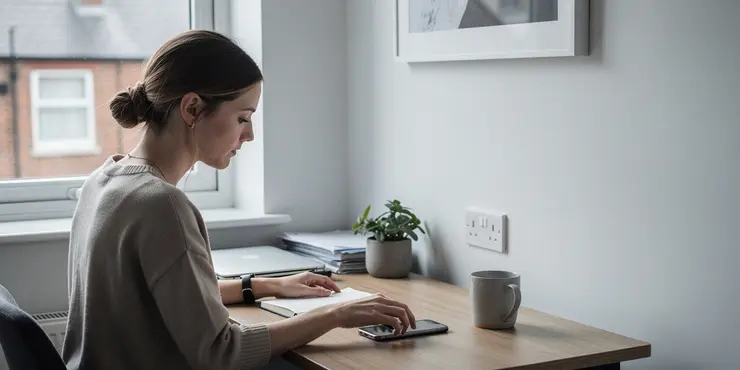
Find Help
More Items From Ergsy search
-
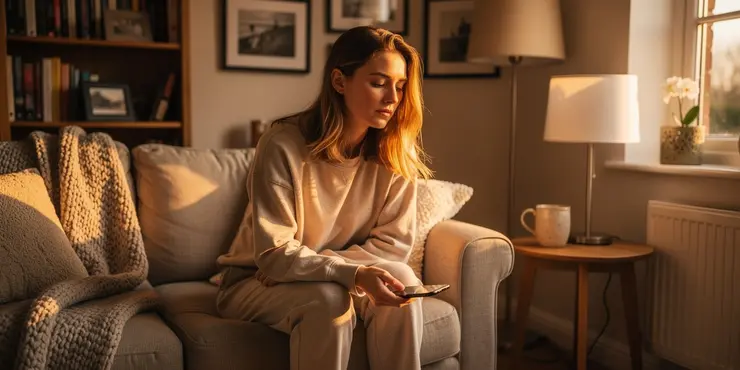
Can reducing screen time improve sleep quality?
Relevance: 100%
-
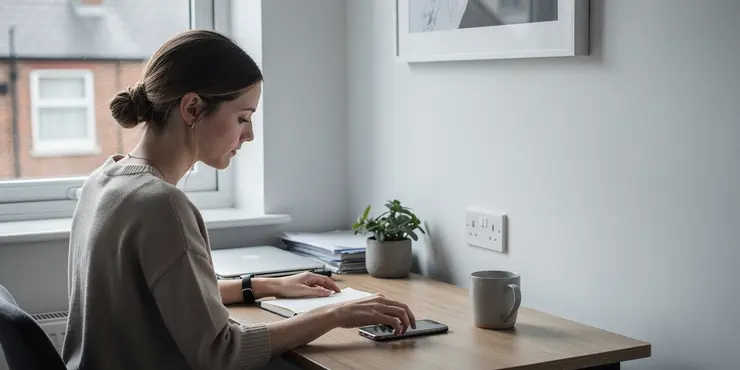
How does screen time affect sleep quality?
Relevance: 100%
-
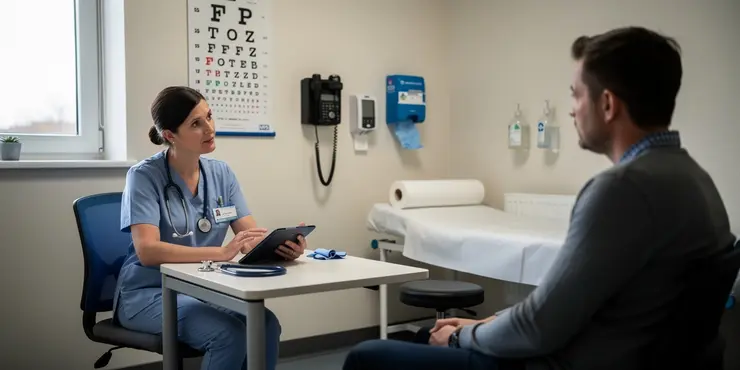
Study Shows Link Between Screen Time and Sleep Quality
Relevance: 97%
-
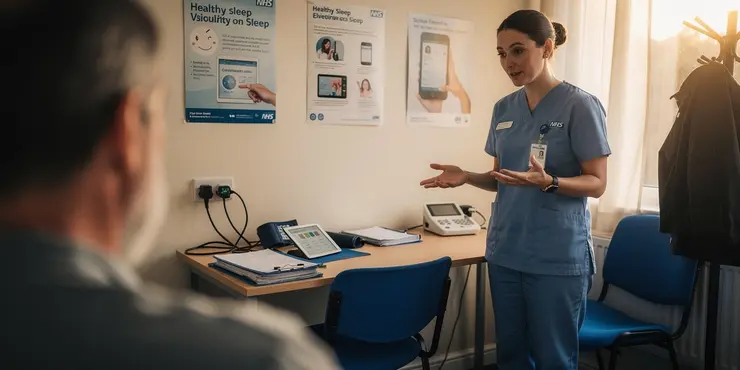
What is the main finding of the study linking screen time to sleep quality?
Relevance: 94%
-
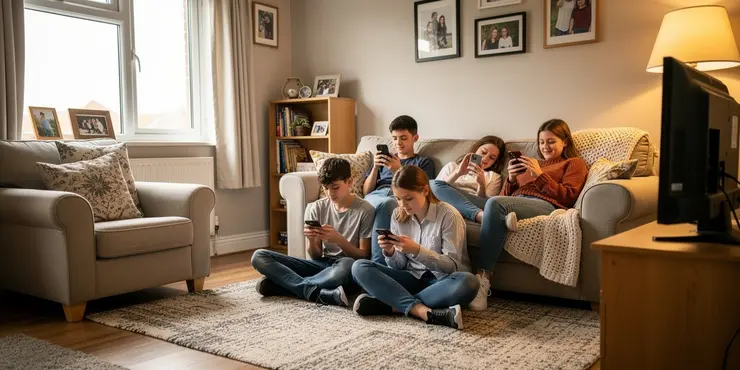
What demographic showed the most significant change in sleep quality due to screen time?
Relevance: 89%
-
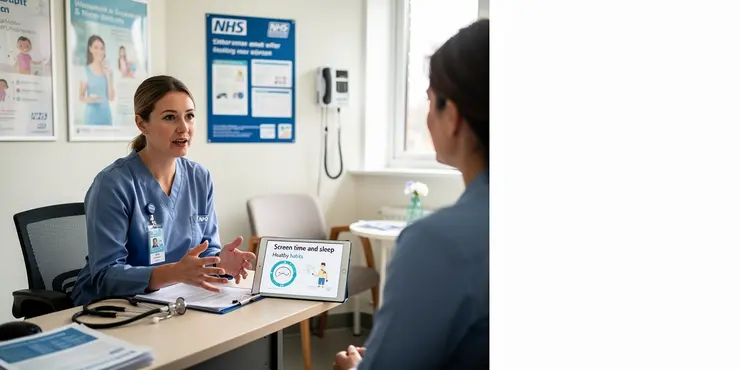
Does screen time impact REM sleep?
Relevance: 83%
-
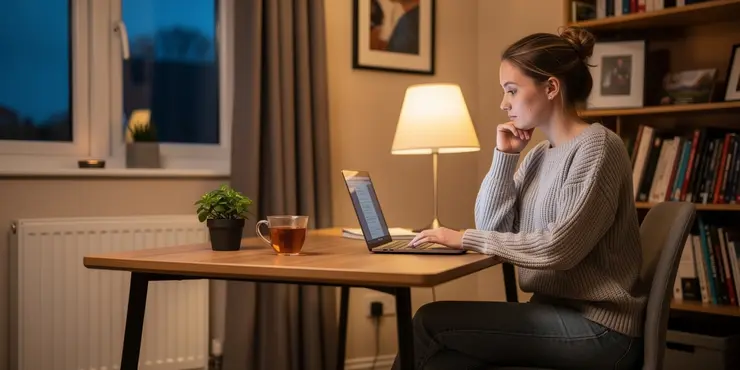
Is blue light from screens a factor in affecting sleep quality?
Relevance: 80%
-
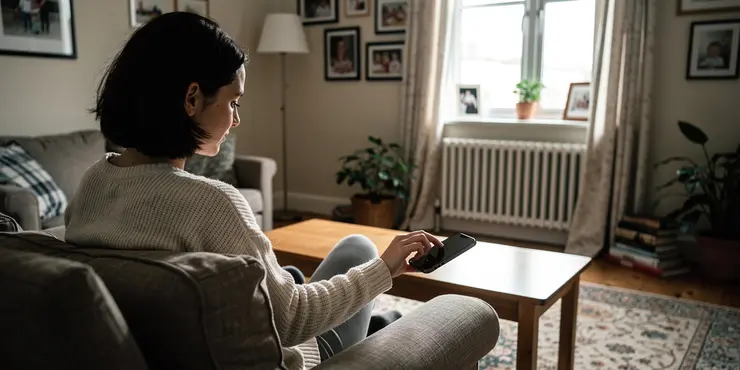
Are there any screen time guidelines recommended for improving sleep?
Relevance: 79%
-
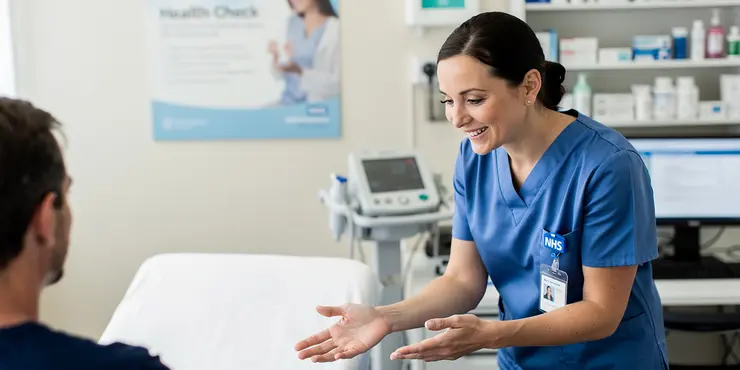
Is there a difference in screen time impact on sleep between weekdays and weekends?
Relevance: 79%
-
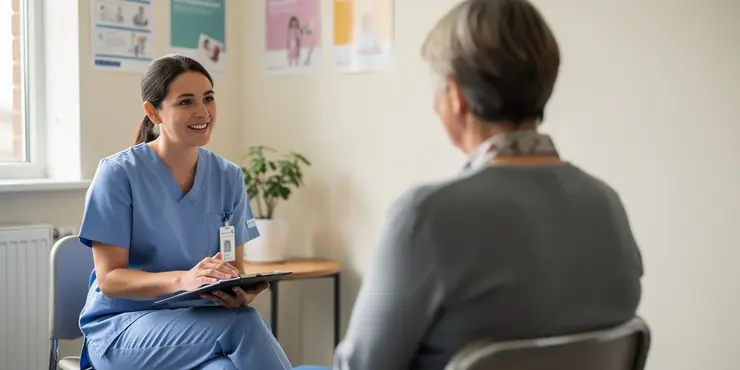
Does screen time affect both sleep onset and sleep maintenance?
Relevance: 78%
-
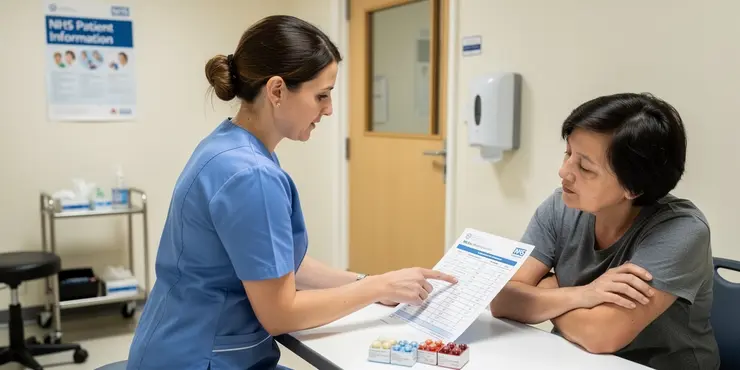
What are some tips for reducing screen time to improve sleep?
Relevance: 77%
-
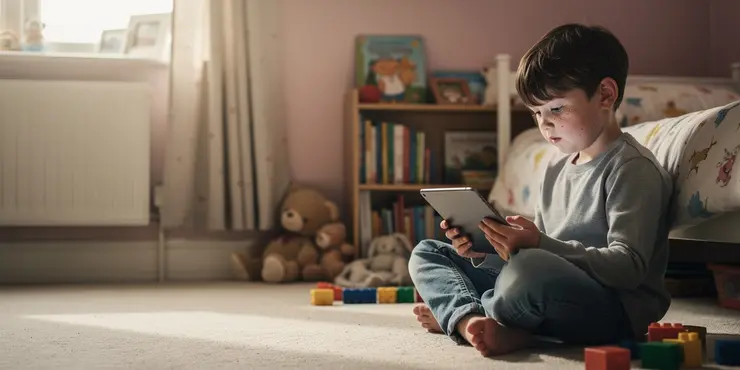
Are children more affected by screen time in relation to sleep than adults?
Relevance: 75%
-
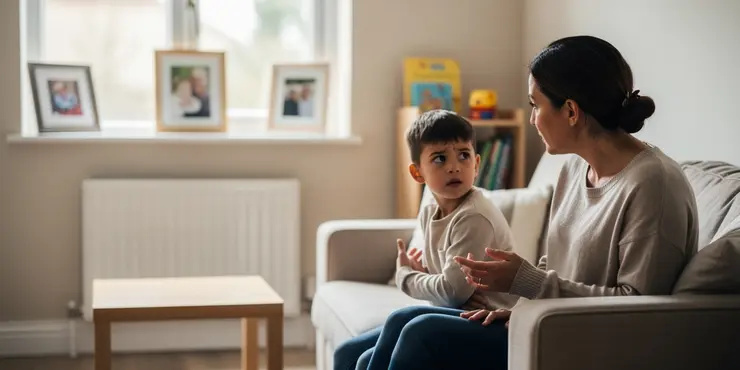
What is the role of parental monitoring in children's screen time and sleep?
Relevance: 69%
-
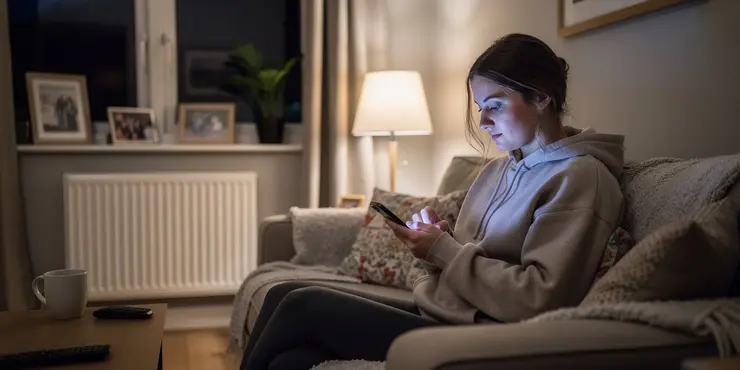
What are some long-term effects of poor sleep quality linked to screen time?
Relevance: 67%
-
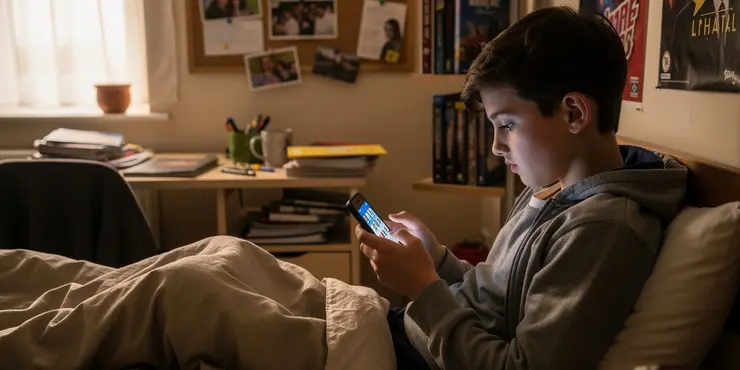
How does screen time before bed specifically affect adolescents?
Relevance: 63%
-
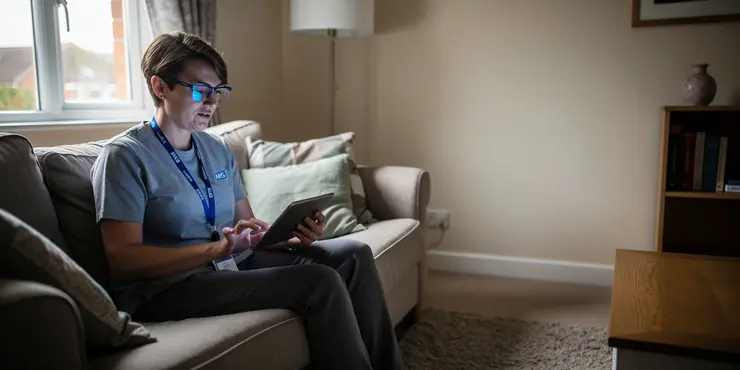
Do mitigation strategies like blue light glasses help improve sleep quality?
Relevance: 63%
-
How does sleep quality relate to menopause symptoms?
Relevance: 59%
-
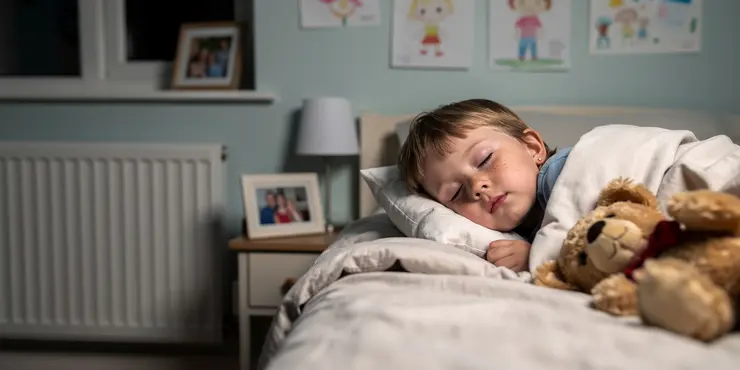
The Importance of Sleep for All Ages
Relevance: 45%
-
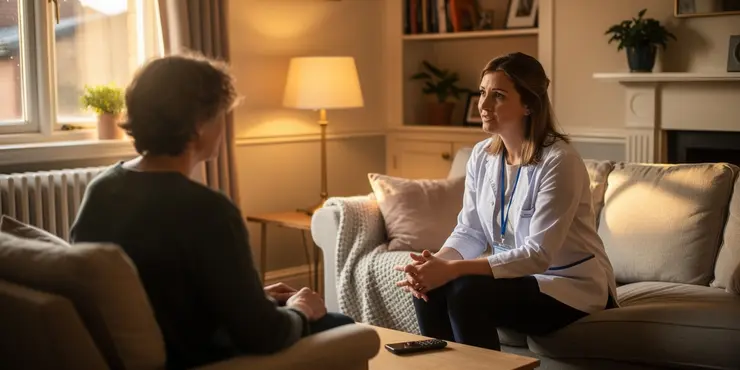
Top Tips to Help You Get a Good Nights Sleep
Relevance: 44%
-
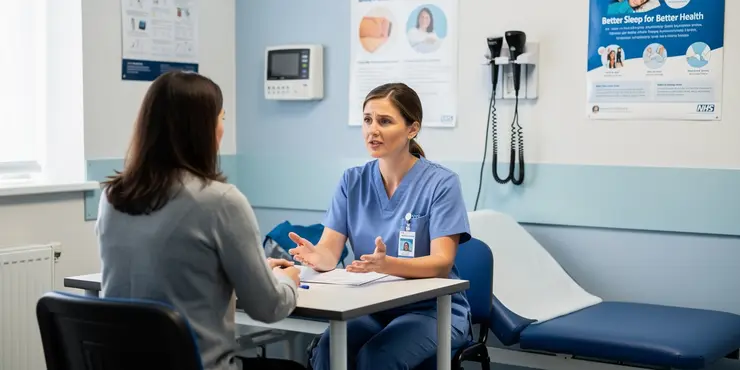
Can alcohol worsen sleep apnea?
Relevance: 39%
-
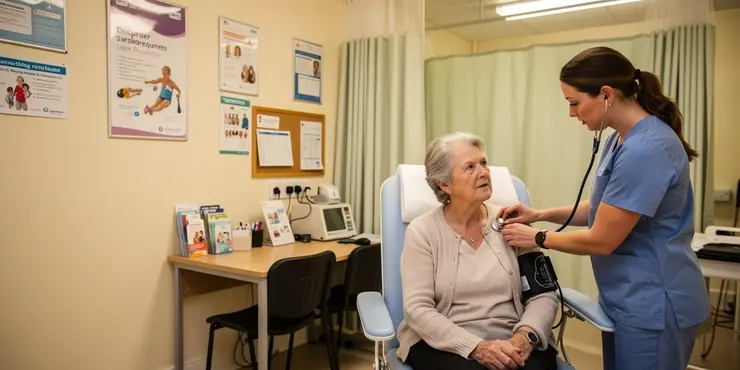
Is it safe to sleep after a concussion?
Relevance: 39%
-
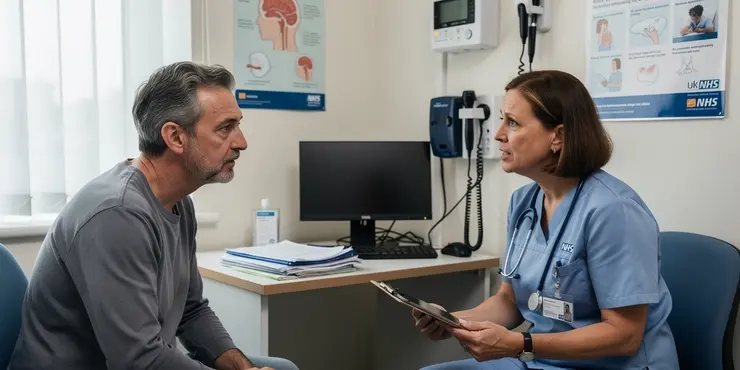
What is sleep apnea?
Relevance: 38%
-
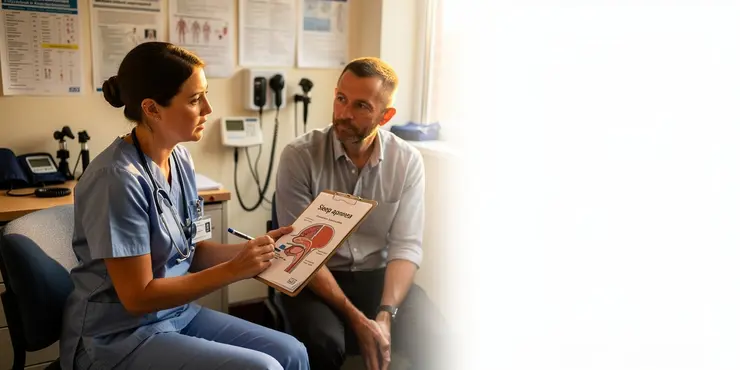
What is sleep apnoea?
Relevance: 38%
-
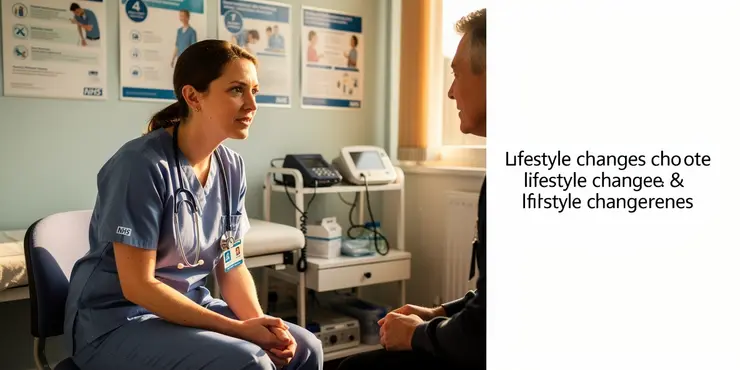
What lifestyle changes can help manage sleep apnea?
Relevance: 38%
-
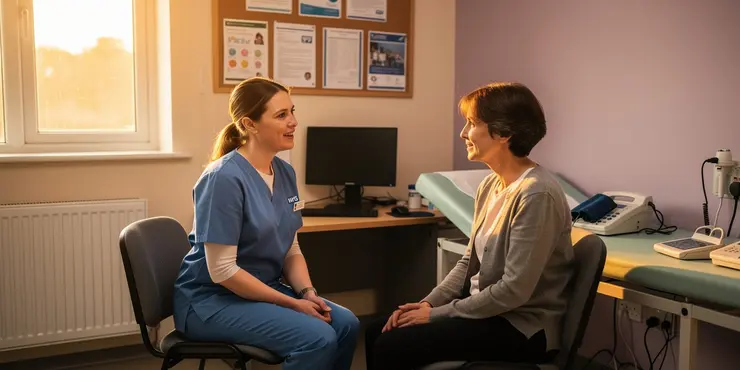
Why is sleep apnea dangerous?
Relevance: 38%
-
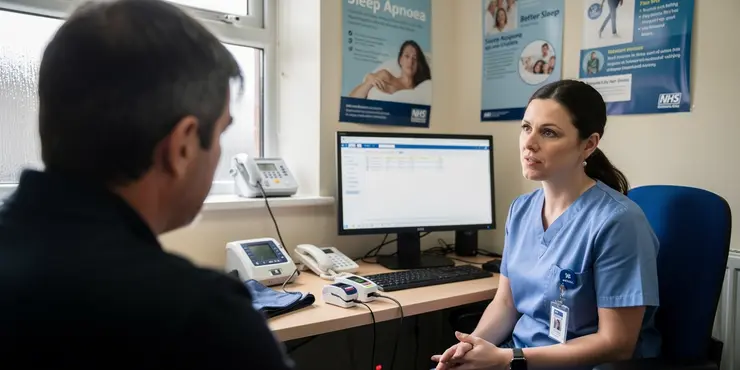
How common is sleep apnea?
Relevance: 37%
-
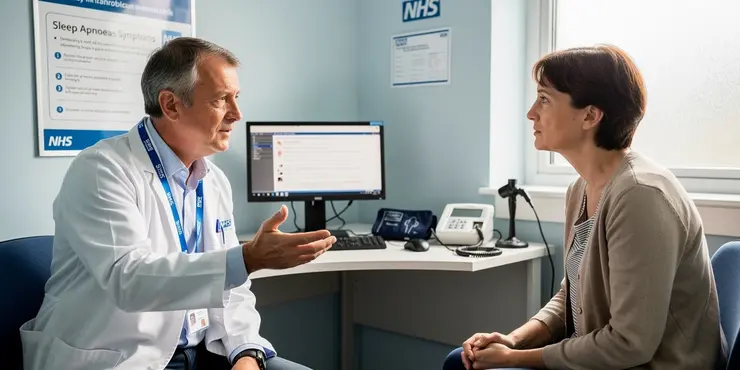
What are common symptoms of sleep apnea?
Relevance: 36%
-
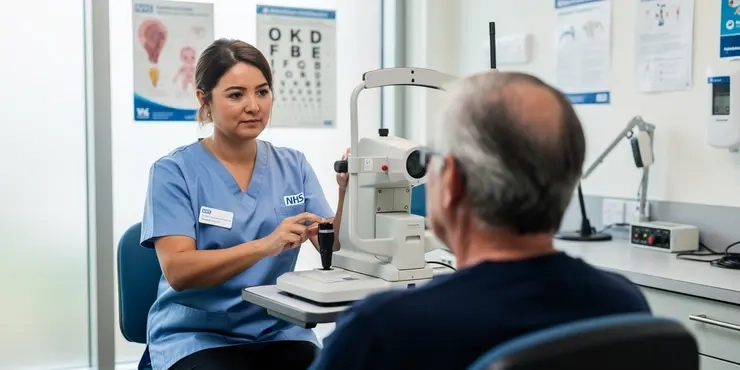
Derbyshire Diabetic Eye Screening - Diabetic Eye Screening
Relevance: 36%
-
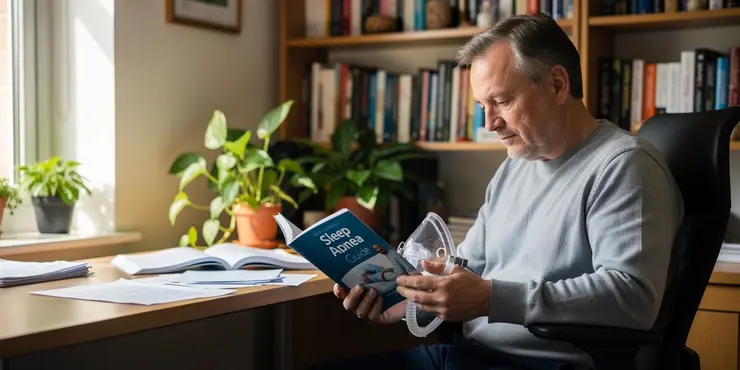
What is complex sleep apnea syndrome?
Relevance: 36%
-
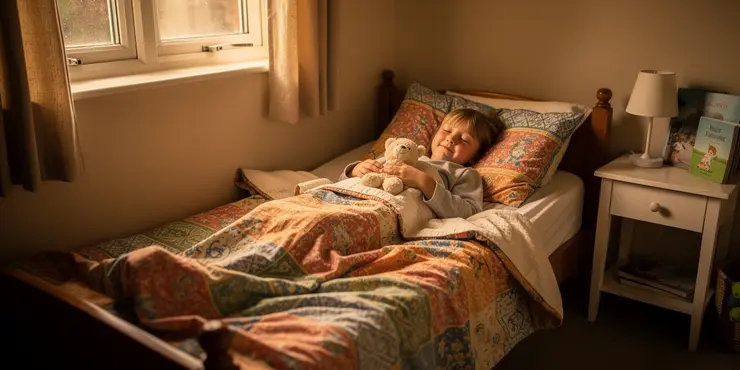
Can children have sleep apnea?
Relevance: 36%
-
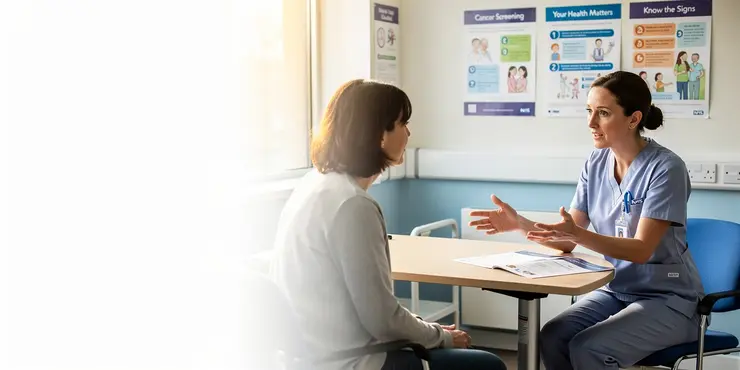
What is cancer screening?
Relevance: 35%
-
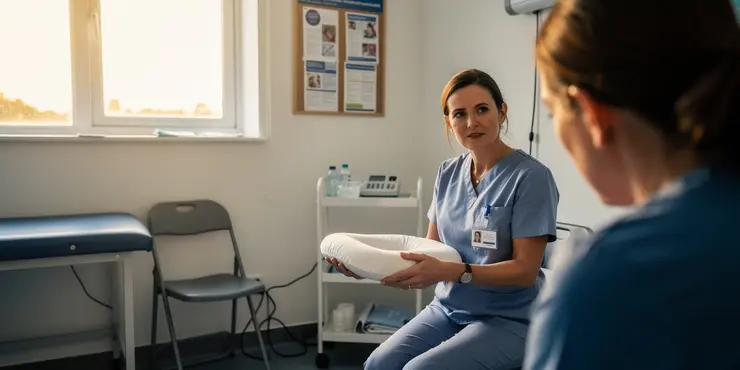
Are there any benefits to using baby sleep pillows?
Relevance: 35%
-
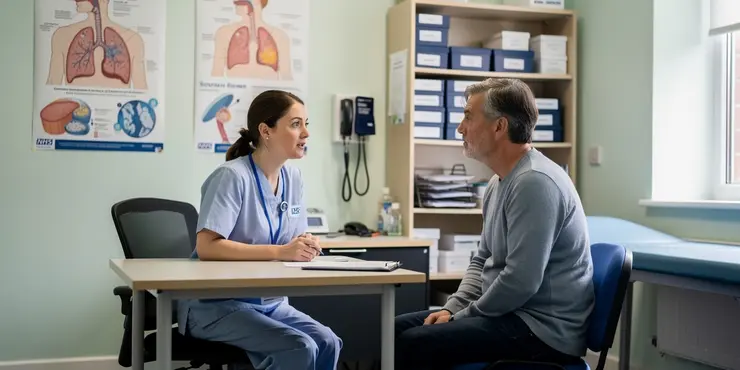
Is snoring always a sign of sleep apnea?
Relevance: 35%
-
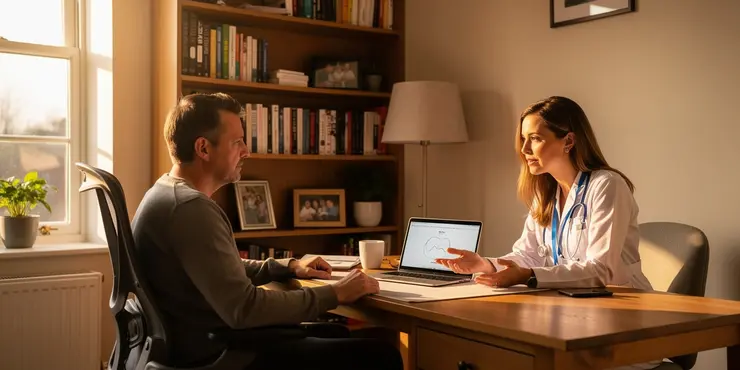
How is sleep apnea diagnosed?
Relevance: 35%
-
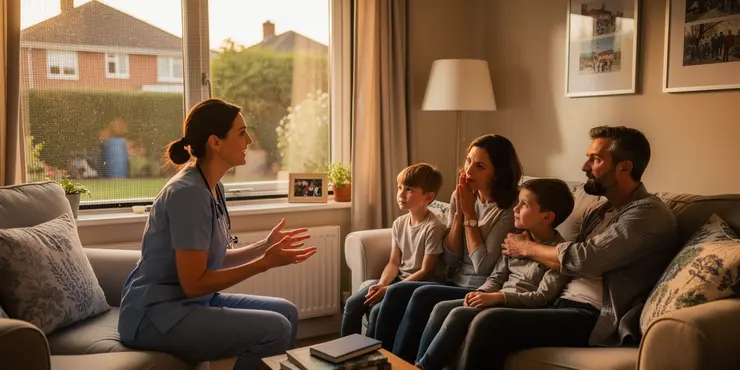
Are mosquito window screens effective in the UK?
Relevance: 35%
-
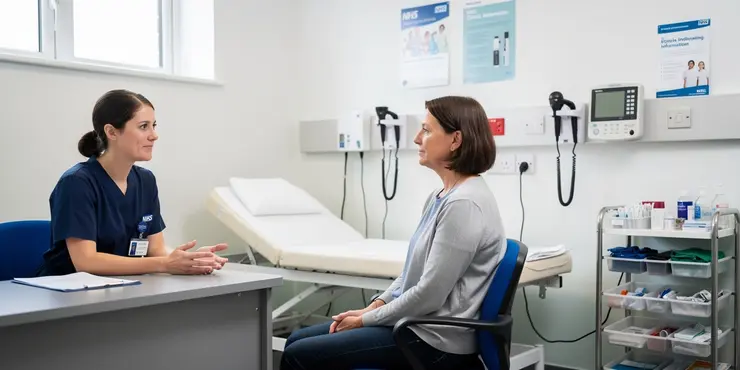
What is complex sleep apnea syndrome?
Relevance: 35%
-
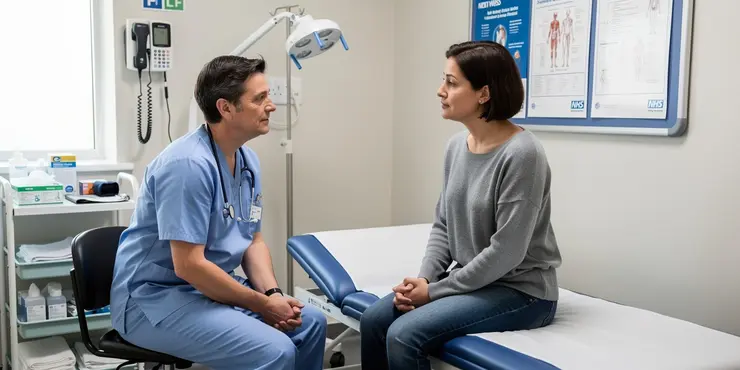
What should I do if I suspect I have sleep apnea?
Relevance: 34%
-
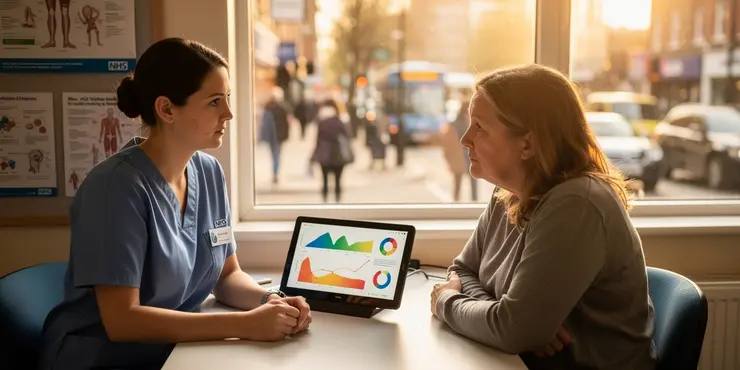
Is UK air quality changing?
Relevance: 34%
-
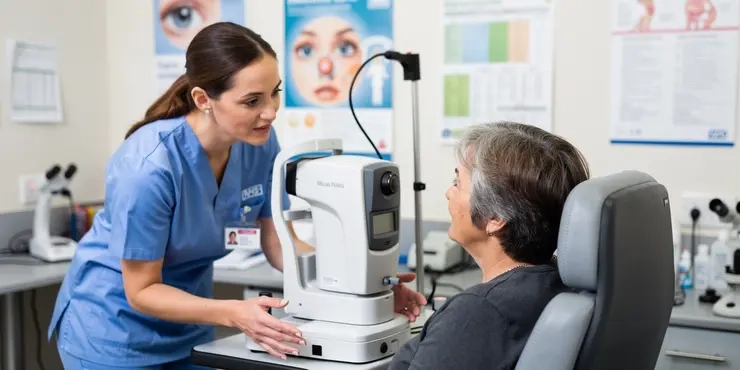
Diabetes Eye Screening
Relevance: 34%
-
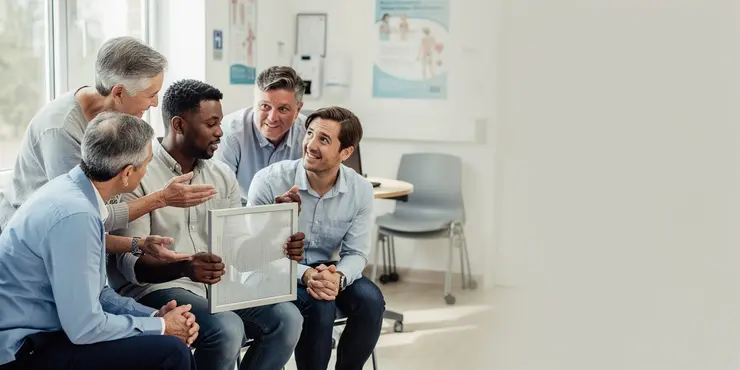
Are there eco-friendly mosquito screen options?
Relevance: 34%
Understanding Screen Time and Sleep
In today's digital age, screen time is an integral part of daily life for many people in the UK. Whether it’s for work, education, or leisure, we spend a significant portion of our day in front of screens. However, increased screen time can have a notable impact on sleep quality. Understanding this relationship is crucial in ensuring better sleep and overall health.
The Impact of Blue Light
Most digital screens emit blue light, a short-wavelength light that can interfere with our natural sleep cycle. Exposure to blue light in the evening can reduce or delay the production of melatonin, a hormone that regulates sleep-wake cycles. This interference can result in difficulty falling asleep and lead to poorer sleep quality. Many studies suggest limiting screen exposure at least one hour before bedtime to minimise these effects.
The Role of Mental Stimulation
Using screens before bedtime often involves activities that are mentally stimulating, such as browsing social media, watching videos, or playing games. These activities can increase alertness, making it harder for the mind to relax and fall asleep. The more engaged one is with their device before bed, the more difficult it can be to transition into a restful state, thereby affecting sleep quality.
Effects on Sleep Duration and Cycles
Excessive screen time can also lead to shorter sleep duration. Engaging with interesting content on screens can cause individuals to go to bed later than intended. Over time, this can lead to a cumulative sleep debt, negatively impacting both physical and mental health. Furthermore, disrupted sleep cycles caused by late-night screen use can result in less time spent in deeper, restorative sleep stages.
Implications for Children and Adolescents
Children and adolescents are particularly vulnerable to the negative effects of screen time on sleep. Their bodies and brains are still developing, and sufficient sleep is critical for healthy growth. Research indicates that excessive screen time is linked with shorter sleep duration and lower sleep quality in young people, affecting their cognitive function, mood, and academic performance.
Tips for Improving Sleep Quality
Reducing screen time before bed can significantly improve sleep quality. Setting screen time limits, using blue light filters on devices, and creating a relaxing bedtime routine can help. Encouraging alternative activities like reading a book or practicing relaxation techniques can prepare the body and mind for sleep. For better sleep hygiene, a concerted effort to manage screen time is essential.
Understanding Screen Time and Sleep
Today, many people in the UK use screens a lot. We use them for work, school, and fun. But using screens too much can make it hard to sleep well. Knowing how screen time and sleep affect each other can help us sleep better and stay healthy.
The Impact of Blue Light
Screens give off blue light. This light can confuse our body's sleep signals. It can stop the body from making a sleep hormone called melatonin. This makes it hard to fall asleep. To help, try not to use screens at least one hour before you go to bed.
The Role of Mental Stimulation
Before bed, using screens can make your brain active. Things like browsing social media, watching videos, or playing games wake up your brain. If your brain is too awake, it is hard to relax and sleep. It is important to let your mind calm down before sleeping.
Effects on Sleep Duration and Cycles
Using screens a lot can mean less sleep. Fun things on screens can make you stay up late. Over time, this can mean not enough sleep, which is bad for your body and mind. Using screens late at night can also stop you from having deep, restful sleep.
Implications for Children and Adolescents
Kids and teens need good sleep for growing and learning. Too much screen time can mean not enough sleep and lower sleep quality. This can make it hard for them to think, feel happy, and do well in school.
Tips for Improving Sleep Quality
To sleep better, try to use screens less before bed. You can set limits on screen time and use blue light filters on devices. Try to create a calming bedtime routine. You can read a book or do relaxation exercises to get ready for sleep. Managing screen time helps improve sleep hygiene.
Frequently Asked Questions
What is screen time?
Screen time refers to the amount of time spent using devices with screens, such as smartphones, tablets, computers, and televisions.
How can screen time affect sleep quality?
Screen time can affect sleep quality by exposing you to blue light, which can disrupt your circadian rhythm and delay the release of melatonin, the sleep hormone.
What is blue light and why is it concerning?
Blue light is a type of light emitted by screens that is similar to daylight. It can interfere with the body's natural sleep-wake cycle by tricking the brain into thinking it's still daylight.
Does using a screen before bed affect sleep?
Yes, using screens before bed can delay the onset of sleep, reduce the total amount of sleep, and decrease sleep quality.
How much screen time is considered too much before bed?
Experts often recommend avoiding screens at least 30 to 60 minutes before bedtime to minimize the adverse effects on sleep.
Is it only the blue light from screens that affects sleep?
While blue light is a primary concern, engaging in stimulating or stressful activities on screens right before bed can also impact sleep quality.
Can reducing screen time improve sleep quality?
Yes, reducing screen time, especially before bed, can improve sleep quality by allowing your body to produce melatonin naturally.
Are there tools to reduce blue light exposure from screens?
Many devices offer 'night mode' or 'blue light filter' settings that reduce blue light emission. There are also screen protector films and glasses that block blue light.
Does the type of content on screens affect sleep?
Yes, watching stimulating or stressful content can make it harder to relax, making it more difficult to fall asleep even without blue light exposure.
Can children be more affected by screen time than adults?
Children and teenagers may be more susceptible to the effects of screen time on sleep due to their developing bodies and higher sensitivity to light.
What are some signs that screen time is affecting sleep quality?
Signs include difficulty falling asleep, frequent waking, feeling tired upon waking, and needing more naps during the day.
How does screen time impact circadian rhythms?
Screen time, especially in the evening, can suppress melatonin production and shift the sleep-wake cycle, making it harder to fall asleep at a regular time.
What can parents do to limit screen time effects on children's sleep?
Parents can set screen time limits, encourage activities without screens before bed, and ensure devices are used in common areas rather than bedrooms.
Can reading on a screen affect sleep differently than reading a book?
Yes, reading on backlit screens can affect sleep due to blue light exposure, unlike reading a physical book which doesn't emit light.
Is listening to music on a device considered screen time?
While it involves using a device, listening to music without looking at a screen generally doesn't affect sleep like screen use does.
Does using screens in the morning affect sleep quality at night?
Morning screen use is less likely to affect sleep quality at night, but it's best to manage overall screen time for well-being.
Can using e-readers impact sleep?
E-readers without backlighting don't emit blue light and are less likely to impact sleep, unlike those with self-lit screens.
Does screen time affect the quality or just the quantity of sleep?
Screen time can affect both the quantity of sleep by delaying bedtime and the quality by disrupting the body's natural rhythms.
Are all screens equally harmful to sleep?
Devices with larger and brighter screens, like TVs and tablets, may emit more blue light and can be more disruptive than smaller screens.
What are healthy screen time habits for better sleep?
Consider setting a regular time to put away screens before bed, use features that lower blue light, and engage in relaxing activities.
What is screen time?
Screen time is the time you spend looking at screens. Screens can be TVs, computers, tablets, or phones. It's how long you use things like TVs and games.
You can use timers to help you. Ask an adult for help if you need it.
Screen time means the time you spend using things like phones, tablets, computers, and TVs.
How does screen time affect sleep?
Looking at screens before bed can make it hard to sleep.
Screens like phones or tablets give off a strong light. This light tells the brain to stay awake.
Try these tips to help sleep better:
- Turn off screens 1 hour before bed.
- Read a book or listen to calm music instead.
- Keep the bedroom dark and quiet.
Looking at screens can make it hard to sleep. Screens have a blue light that can stop your body clock from working right. It can also stop your body from making melatonin, which is a chemical that helps you sleep.
What is blue light and why is it a worry?
Blue light comes from screens, like phones and computers. It looks like daylight. Blue light can make it hard for us to know when to sleep because it makes our brains think it is still daytime.
Does using a screen before bed affect sleep?
Do you watch TV or use a phone or tablet before bed? This might make it hard to sleep well.
Here is a way to help: turn off screens an hour before bed. This can help you fall asleep faster and sleep better.
If you need help with this, try using a book or listening to calming music before bed instead of screens.
Yes, looking at screens before bed can make it harder to fall asleep, make you sleep less, and make your sleep not as good.
How long should you use screens before bed?
Experts say it's a good idea to stay away from screens like phones and TVs at least 30 to 60 minutes before bedtime. This can help you sleep better.
Here are some tips to help: - Try reading a book or listening to calm music before bed. - You can use apps that remind you to stop using screens. - Ask for help from someone if it's hard to stop using screens.Does only blue light from screens make it hard to sleep?
Screens like phones and tablets show blue light. This can make it hard to sleep. But other things can also make sleep difficult.
- Don't use screens before bed. Try reading a book or listening to calm music instead.
- Make sure your room is dark and quiet when it's time to sleep.
- Try relaxing activities before bed, like deep breathing or gentle stretching.
Looking at screens before bed can make it hard to sleep. The blue light from screens is one reason. Doing exciting or stressful things on screens can also make sleep worse.
Does spending less time on screens help you sleep better?
Yes, using screens less, especially before bedtime, can help you sleep better. This is because it gives your body time to make melatonin naturally, which helps you sleep.
Can I use something to help stop blue light from screens?
Many devices have settings called 'night mode' or 'blue light filter.' These settings help reduce blue light. You can also use special screen covers or glasses to block blue light.
Do different things on screens change how we sleep?
Yes, watching exciting or scary videos can make it hard to calm down. This means you might have trouble falling asleep, even if there is no blue light.
Do screens affect kids more than grown-ups?
Kids might be more affected by screens. It's because their brains are still growing. Grown-ups' brains are finished growing, so screens might not affect them as much.
Some tips to help with screen time:
- Have breaks when using screens.
- Do different activities like playing outside.
- Use apps that help remind you to take breaks.
- Talk with a grown-up about how much screen time is okay.
Kids and teenagers may have trouble sleeping because their bodies are still growing. The light from screens can affect them more easily.
How can you tell if too much screen time is stopping you from sleeping well?
Signs of sleep problems are:
- Finding it hard to fall asleep.
- Waking up a lot during the night.
- Feeling tired when you wake up.
- Needing more naps during the day.
Here are some things that can help:
- Go to bed at the same time every night.
- Make your bedroom quiet and dark.
- Turn off screens like phones and TVs before sleep.
- Try deep breathing to help relax.
How does screen time affect sleep patterns?
Using screens like phones, tablets, and TVs for a long time can make it hard to sleep. Screens give off light that can change your body's clock. This might make you go to bed late and feel tired the next day.
To help with this, try these tips:
- Turn off screens an hour before bedtime.
- Use apps that make the screen light softer at night.
- Have a bedtime routine, like reading a book or listening to calm music.
Looking at screens like phones or tablets at night can make it harder to sleep. This is because screens stop the body from making a sleep hormone called melatonin. It also changes when you feel sleepy, making it harder to go to bed at the same time every night.
How can parents help kids sleep better by using screens less?
Parents can help by setting rules for screen time. They can encourage fun things to do without screens before bedtime. It is also a good idea to use devices only in places where everyone is, not in bedrooms.
Can reading on a screen change sleep more than reading a book?
Yes, reading on screens that light up can make it hard to sleep. This is because they give off blue light. Reading a real book doesn't have this problem because it doesn't shine light.
Is listening to music on a device counting as screen time?
When you listen to music, it is okay for sleep because you don’t have to look at a screen. Screens can make it hard to sleep.
Can looking at screens in the morning change how well I sleep at night?
It's important to get good sleep! Here are some tips to help:
- Spend some time without screens before bed. Try reading a book or listening to calm music.
- Keep your bedroom dark and quiet. This helps you sleep better.
- Try using a sleep app to help you relax and get ready for bed.
Using screens like phones or tablets in the morning usually doesn't make it hard to sleep at night. But it's good to keep track of how much time you spend on screens to stay healthy and happy.
Do e-readers affect sleep?
Using e-readers can change how well you sleep. Reading on screens before bed might make it harder to fall asleep.
Here are some tips to help:
- Read a paper book instead of an e-reader at night.
- If you use an e-reader, try setting it to "night mode."
- Stop using screens at least one hour before bed.
These tips can help you sleep better.
E-readers that do not have backlights do not shine blue light. This means they are less likely to mess up your sleep. E-readers with their own lights can shine blue light, which might make it harder to sleep.
Does using screens change how well or how long we sleep?
Looking at screens a lot can change how much sleep you get. It can make you go to bed later. It can also make your sleep not as good by changing how your body normally sleeps.
Do all screens make it hard to sleep?
Big screens like TVs and tablets are very bright. They can show a lot of blue light. This blue light can bother your eyes more than small screens.
How can I use screens less for better sleep?
Try to pick a regular time to stop using screens before bed. You can use special features that make the screen light softer. Do calming things to help you relax.
Useful Links
This website offers general information and is not a substitute for professional advice.
Always seek guidance from qualified professionals.
If you have any medical concerns or need urgent help, contact a healthcare professional or emergency services immediately.
Some of this content was generated with AI assistance. We’ve done our best to keep it accurate, helpful, and human-friendly.
- Ergsy carfully checks the information in the videos we provide here.
- Videos shown by Youtube after a video has completed, have NOT been reviewed by ERGSY.
- To view, click the arrow in centre of video.
- Most of the videos you find here will have subtitles and/or closed captions available.
- You may need to turn these on, and choose your preferred language.
- Go to the video you'd like to watch.
- If closed captions (CC) are available, settings will be visible on the bottom right of the video player.
- To turn on Captions, click settings .
- To turn off Captions, click settings again.
More Items From Ergsy search
-

Can reducing screen time improve sleep quality?
Relevance: 100%
-

How does screen time affect sleep quality?
Relevance: 100%
-

Study Shows Link Between Screen Time and Sleep Quality
Relevance: 97%
-

What is the main finding of the study linking screen time to sleep quality?
Relevance: 94%
-

What demographic showed the most significant change in sleep quality due to screen time?
Relevance: 89%
-

Does screen time impact REM sleep?
Relevance: 83%
-

Is blue light from screens a factor in affecting sleep quality?
Relevance: 80%
-

Are there any screen time guidelines recommended for improving sleep?
Relevance: 79%
-

Is there a difference in screen time impact on sleep between weekdays and weekends?
Relevance: 79%
-

Does screen time affect both sleep onset and sleep maintenance?
Relevance: 78%
-

What are some tips for reducing screen time to improve sleep?
Relevance: 77%
-

Are children more affected by screen time in relation to sleep than adults?
Relevance: 75%
-

What is the role of parental monitoring in children's screen time and sleep?
Relevance: 69%
-

What are some long-term effects of poor sleep quality linked to screen time?
Relevance: 67%
-

How does screen time before bed specifically affect adolescents?
Relevance: 63%
-

Do mitigation strategies like blue light glasses help improve sleep quality?
Relevance: 63%
-
How does sleep quality relate to menopause symptoms?
Relevance: 59%
-

The Importance of Sleep for All Ages
Relevance: 45%
-

Top Tips to Help You Get a Good Nights Sleep
Relevance: 44%
-

Can alcohol worsen sleep apnea?
Relevance: 39%
-

Is it safe to sleep after a concussion?
Relevance: 39%
-

What is sleep apnea?
Relevance: 38%
-

What is sleep apnoea?
Relevance: 38%
-

What lifestyle changes can help manage sleep apnea?
Relevance: 38%
-

Why is sleep apnea dangerous?
Relevance: 38%
-

How common is sleep apnea?
Relevance: 37%
-

What are common symptoms of sleep apnea?
Relevance: 36%
-

Derbyshire Diabetic Eye Screening - Diabetic Eye Screening
Relevance: 36%
-

What is complex sleep apnea syndrome?
Relevance: 36%
-

Can children have sleep apnea?
Relevance: 36%
-

What is cancer screening?
Relevance: 35%
-

Are there any benefits to using baby sleep pillows?
Relevance: 35%
-

Is snoring always a sign of sleep apnea?
Relevance: 35%
-

How is sleep apnea diagnosed?
Relevance: 35%
-

Are mosquito window screens effective in the UK?
Relevance: 35%
-

What is complex sleep apnea syndrome?
Relevance: 35%
-

What should I do if I suspect I have sleep apnea?
Relevance: 34%
-

Is UK air quality changing?
Relevance: 34%
-

Diabetes Eye Screening
Relevance: 34%
-

Are there eco-friendly mosquito screen options?
Relevance: 34%


